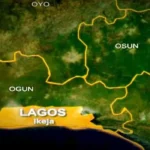Engr. Olatunji Ariyomo is a Fellow of the Nigerian Society of Engineers (FNSE), a former member of the Federal Government’s Ministerial Taskforce on Power and a former Special Adviser on Energy to the Government of Ondo State under late Governor Rotimi Akeredolu. The Harvard and the Federal University of Technology, Akure (FUTA)-trained Engineer in this interview, speaks with YINKA OLADOYINBO on the state of the energy sector in the country and sundry issues. Excerpts:
Having served as a member of the Federal Government’s Ministerial Taskforce on electricity, how would you describe the energy situation in the country?
Arguably the most significant factor that is impacting the Nigerian economy today is energy. The overall state of our energy supply, availability, the efficiency of our energy infrastructure, access to electricity for 235 million people, the price per liter of fuel or kw of electricity, our role in the global energy supply chain—whether we are producers of economic means or mere net consumers, and so on.
The Nigerian power sector presents great opportunities. But we have serious challenges. These challenges have confounded the handlers of the sector. Those challenges have sort of conspired to deny us the rewards that ought to accrue to our economy and well-being from a high-performing power sector. This is why you see us celebrating a one-fold win this week only to experience double-fold losses the following week. So, the sector is convoluted. The energy sector is part of the real sector. The real sector cannot be governed by media theatrics. The real sector is defined by impacts. If you are on the right track, you will see the impacts.
Despite the huge investment by successive administrations stable power still eludes the country, why?
Let me first offer a caveat—all presidents of Nigeria since 1999 have meant well for the energy sector. All, without exception. They proved this by approving adequate money for the sector. Our presidents have more or less bent over backward to please the NNPC for instance. Power has also received one of the bulkiest federal budgetary allocations consistently since 1999. I often illustrate with the parable of an imaginary button. Were there an imaginary button to be pressed by any of the presidents that would result in immediate fixes to our ability to fully govern our oil and gas sector and magically become a net exporter of values as well as magically begin to experience uninterrupted electricity supplies, I have no doubt that each of our presidents would press that button. The question then is – what is wrong?
Most of the time, we have been moving in the opposite direction to the solutions. Often, we have been implementing solutions without precedent anywhere else in the world. So, we are basically experimenting. It’s a global principle that solutions must be tailor-made to fit an environment. This is why projects are scoped as part of the planning stage. This is why a project requires feasibility studies that would include environmental and social impact assessment. Let me cite a single example. The national grid collapses today at will. Whether partially or fully, grid collapse has become endemic in Nigeria. Had we carried out a proper pre-implementation assessment of our energy sector and allowed that to shape our strategy, we would have realized that the current monolithic national grid is unsuitable for the Nigeria of 2025. We would have been looking at a quasi-decentralized interconnected tertiary grid system. We would have been looking at focussing on manageable smaller units of growth that can lead to positive competition and collaboration.
As an expert, would you say such investments in the energy sector were enough and we’re in the right direction?
I have stated this countless times, money or investments aren’t the biggest hurdles. The biggest hurdle is our strategy for the energy sector. Do we have the right strategy? If we spend billions of dollars more doing the wrong thing, the size of the money spent wouldn’t make it automatically a worthwhile venture or investment. So, let’s get the strategy right first—a good strategy—a functional and tactical blueprint for our energy sector that addresses the strategic national interest of Nigeria. Then we can discuss the plans to fund the strategy. Look at us last year when we announced with glee that we were starting to meter our flow stations. Seriously? As far back as 2012, I was the lone voice in the expert committee put together by the Nigerian Society of Engineers that metering should be mandatory as from year 2012. Not just metering at flow stations but that we must include well-head metering, the same standard practiced in the USA and Canada. Only our then Director of Professional Development, Dr. Tunde Olatunji supported me and got the NSE President to request me to produce a minority report. So, we are basically joking about serious issues of development.
What would you consider the practical and lasting solutions to the challenges in the power sector in the country?
Let’s restructure that sub-sector. The constitution has been amended already to pave the way for the participation of sub-nationals. Let’s accelerate that opportunity. Let’s find a way to further amend the Electricity Act to empower sub-nationals to collaborate across state boundaries, especially among contiguous states. There could later be mergers as business interests align. Let economy of scale be driven by market considerations and not a national fiat. The country is too diverse to operate a unitary utility growth.
Over 10 years after privatisation of the power sector no significant improvement has been recorded, do you think the privatisation was right at that time?
As I earlier stated, we didn’t have or deploy the right strategy. We got our strategy wrong. Privatization is good and we must for a fact allow the private sector to drive development. But our strategy must be right. When we were focusing on privatization, the first thing we should have done was to liberalize the sector. That’s liberalization. To avoid confusion with economic terms, let me use the telecommunication sector as an example. What we did right in the telecom sector was to liberalize the sector such that a player that scaled the Earnest Ndukwe and El Rufai processes would have to leverage his quest for profit as an incentive for performance. Performance in turn would guarantee that player’s continued ownership of concession rights. In essence, that MTN, Airtel, or Glo would continue to be sole providers of GSM services is organically tied to guaranteed performance. But what we called privatization in the power sector had no such safety guards. Most of the distribution companies simply refused to invest over the past 11 years and nothing happened to them. So, their continuous access to the concessioned rights was simply not dependent upon their continuous optimum performance. Worse, their woeful performance appears to have shielded the other players in the sector, such as generation and transmission from scrutiny. If distribution constraints restricted our total delivery throughput to circa 5,000MW, how can we blame TCN for not improving its transmission capability or blame generation companies for not matching at least 60 percent of their nameplate capacity?
Renewable energy is being adopted all over the world, how do you think Nigeria can tap into this?
It depends on which type of renewable energy. A nation must, however, have a strategic national objective that is exclusively in its interest and to its advantage. I am a strong advocate of renewable energy. My team unquestionably deployed more solar hybrid mini-grid power projects to power communities in Ondo State more than any other team did in any other state in Nigeria between 2018 and February 2021. But on a national scale, I often preach caution. For us to adopt any option like solar, wind, etc, we must be sure that we have control of the means of production as far as the required technology is concerned. If we don’t produce solar panels or wind turbines etc, then we will only remain the permanent market of some smarter nations. So, while designing our strategy for renewable energy, we must factor productivity into the equation. Otherwise, we will continue to unwittingly promote capital flight.
Some states have been investing in the energy sector, how are you encouraging your state, Ondo to seize this opportunity and solve its energy crisis?
Ondo State has the requisite regulations. Ondo State has the manpower. I want Ondo State to be more deliberate, to be more decisive, and to set goals. That’s all.
You once aspired to be governor of Ondo State, and the argument in some quarters is that it is the turn of Ondo central to produce the governor after Ayedatiwa, what is your take on this?
The current governor can’t spend eight years. My prayer is that God will support him to positively shape the destiny of the state for the benefit of the people and to God’s glory. I want to see Ondo State that works. After his term, since everyone has said the central is next, then they should pick a capable person from the central.
As someone from the central senatorial district, are you still considering contesting the next governorship election?
No. I am considering making impacts in the private sector. I have retired from competitive politics. I want to do what I know how to do.
READ ALSO: We can’t guarantee end to frequent national grid collapse — Power minister






